2022 Kawasaki Ninja H2 SX & Ninja H2 SX SE
Kawasaki’s premium supercharged sports-tourer, the Ninja H2 SX, will receive a host of updates in 2022 with the big changes revolving around the addition of a number of active safety features, similar to what have become the norm in the four-wheeled world.
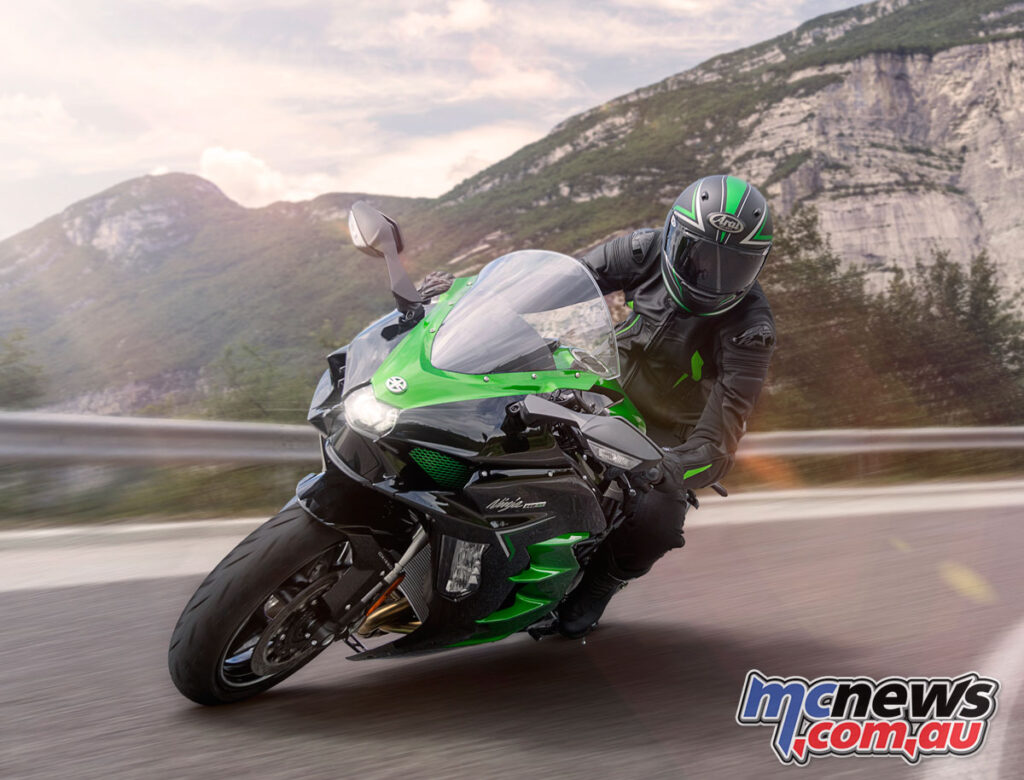
That primarily means the adoption of a radar system which can detect nearby vehicles and offers Adaptive Cruise Control (AAC) and Forward Collision Warning (FCW), but doesn’t stop there.
There’s also BSD or Blind Spot Detection, and KIPASS which is the Kawasaki Intelligent Proximity Activation Start System or sounds like keyless locking and unlocking. A one-key system for the panniers makes use of a flip key inside the KIPASS (surely they should have called it kick-arse) fob.
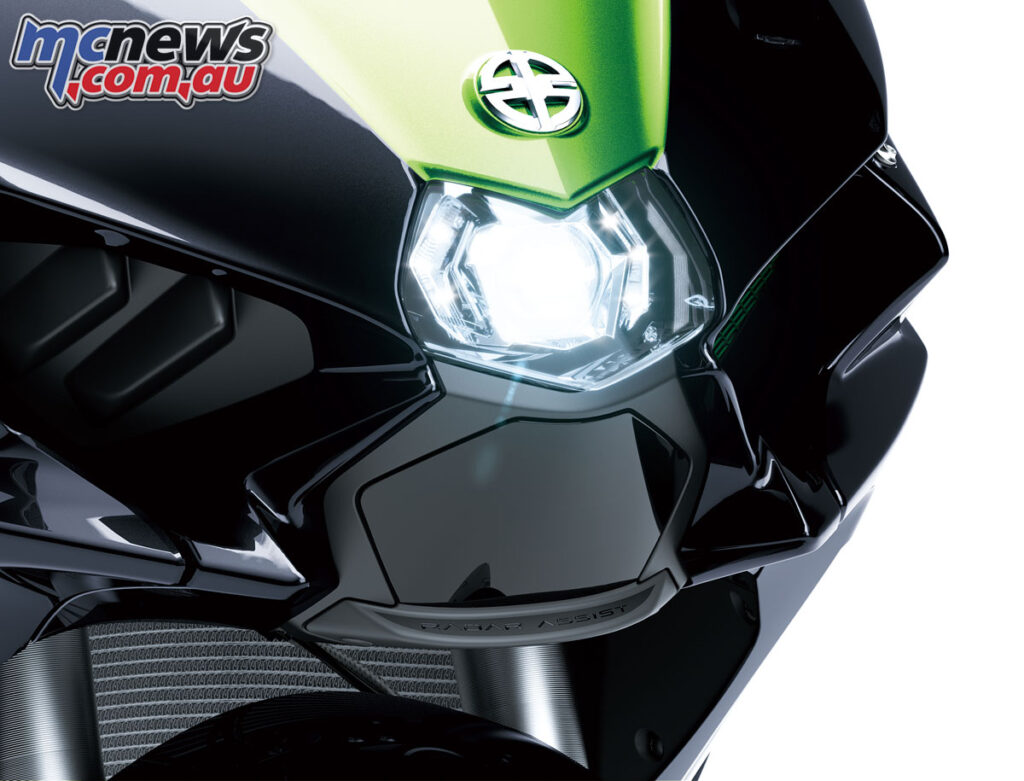
The FCW (not going to expand with my take on that acronym), system can be set to three settings, from Early, Medium and Late and warns the rider with a bright flashing LED on the instrument panel, as well as being able to be disabled, this doesn’t do the braking for the rider, the way some car systems do. BSD on the other hand is a warning light in the mirrors that activates, as with car systems.
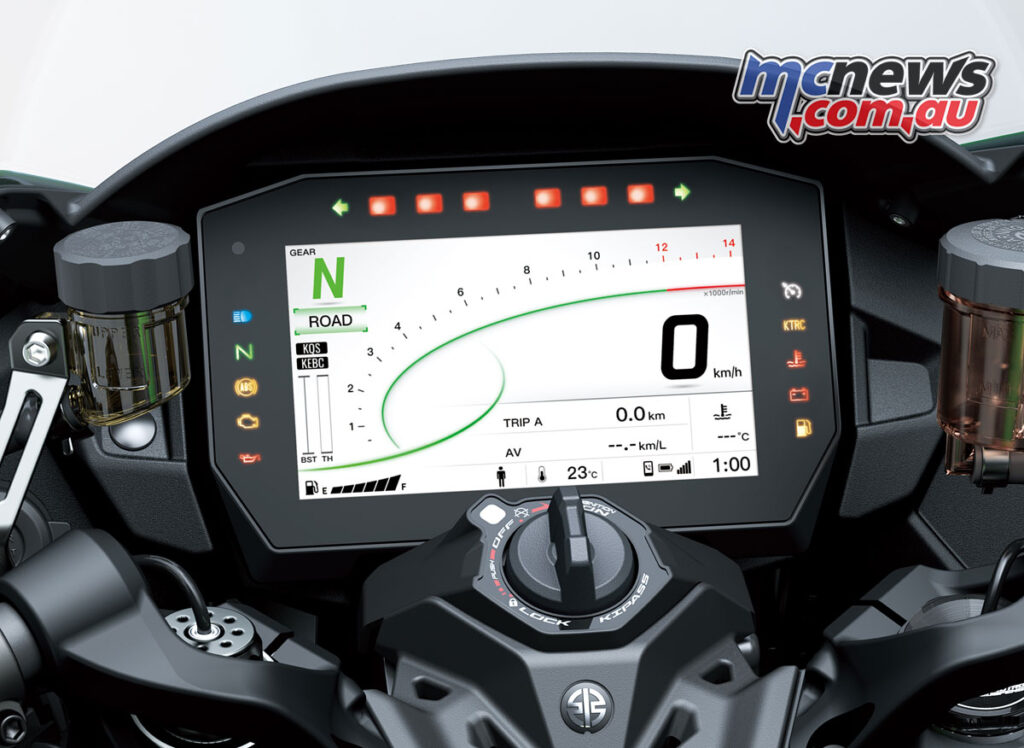
To make room for the radar system on the front of the bike – located under the headlight – a smaller headlight unit is run, giving the front fairing a flatter and more compact look in regards to that headlight, with LED cornering lights still fitted. The mirrors have also been updated to improve aerodynamics.
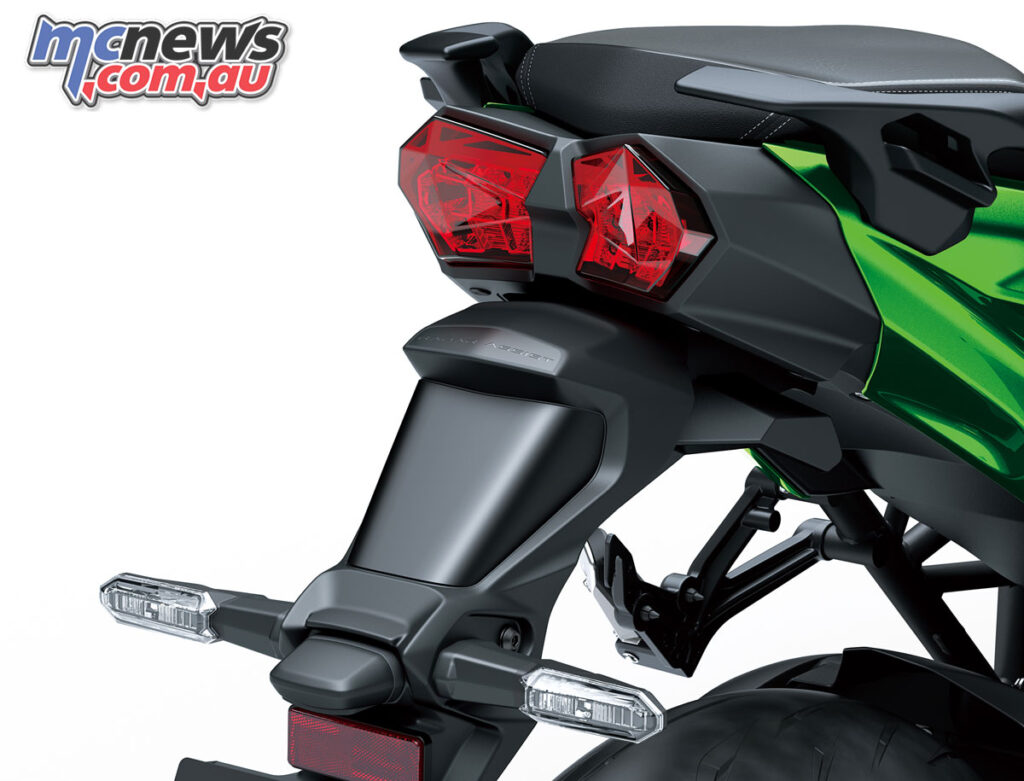
The rear facing sensor is built into the fender, in case you were thinking of adding a fender eliminator, and it is a little bulky as a result. Rear indicators are updated LED units.
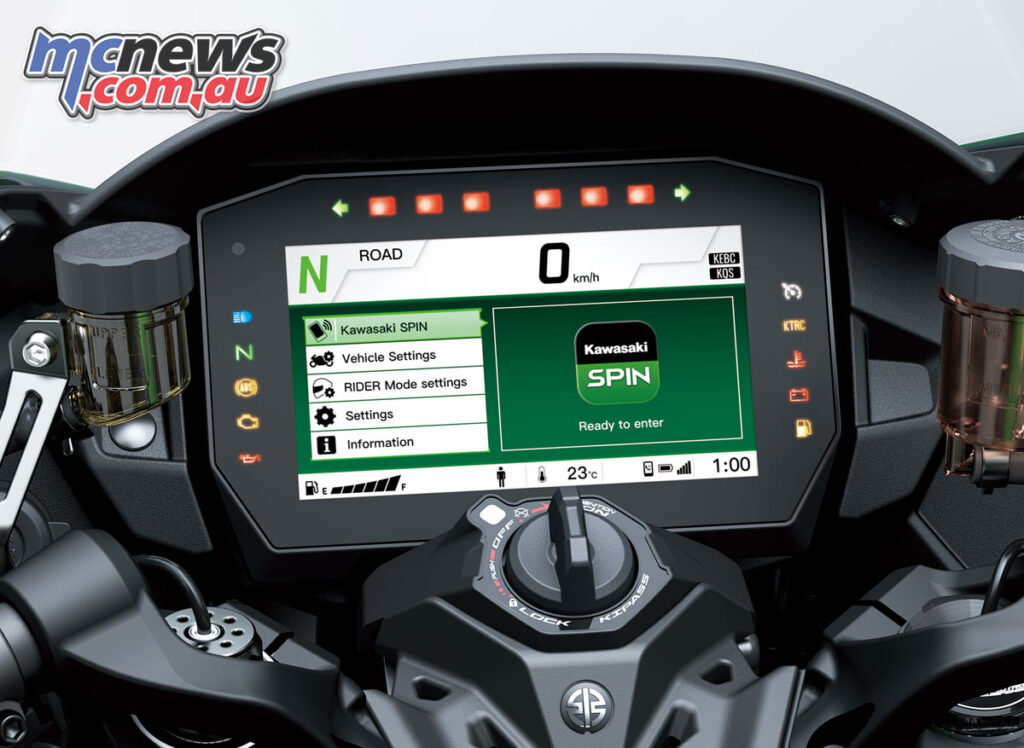
This is all part of the ARAS (oh god, stop me thinking up alternatives for these acronyms), or Advanced Rider Assist System and is introduced alongside Vehicle Hold Assist (VHA), Kawasaki SPIN which allows third party apps to be loaded and displayed via the TFT, greatly expanding the possibilities of that system, while also benefiting from an updated TFT. That means a a revamp to the dash presentation and includes auto switching modes for visibility.
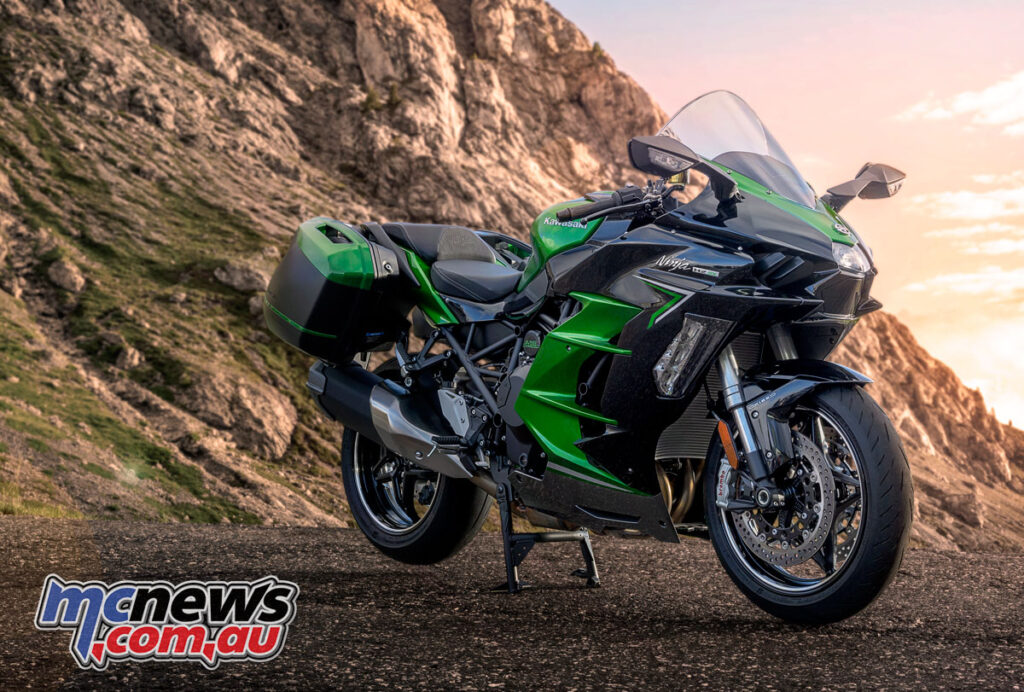
Hand controls also offer access to all the mode selection and display options, for easy access, with basic functions including map, telephone, music, calendar and contacts in the SPIN system.
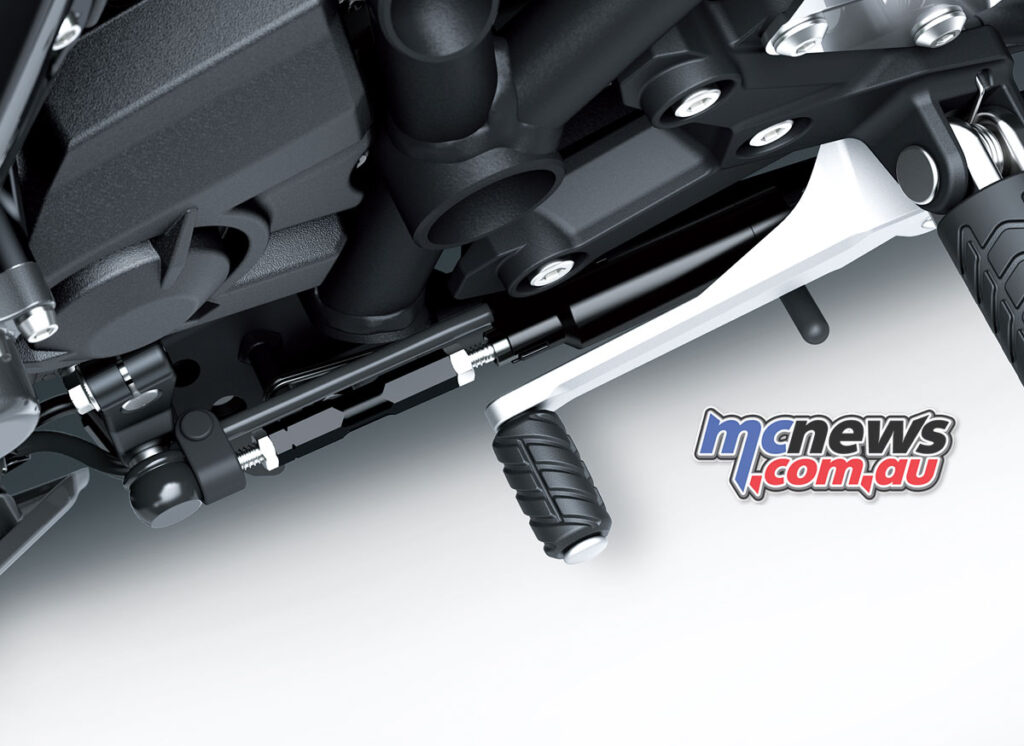
A new TPMS system is also run, while Emergency Stop Signals ensuring high visibility in the event of emergency braking or rapid deceleration, with the Kawasaki Quick Shift system updated and offering bi-directional shifting. The minimum rpm the system works at has also been lowered to 1600 rpm, allowing for more casual city use.
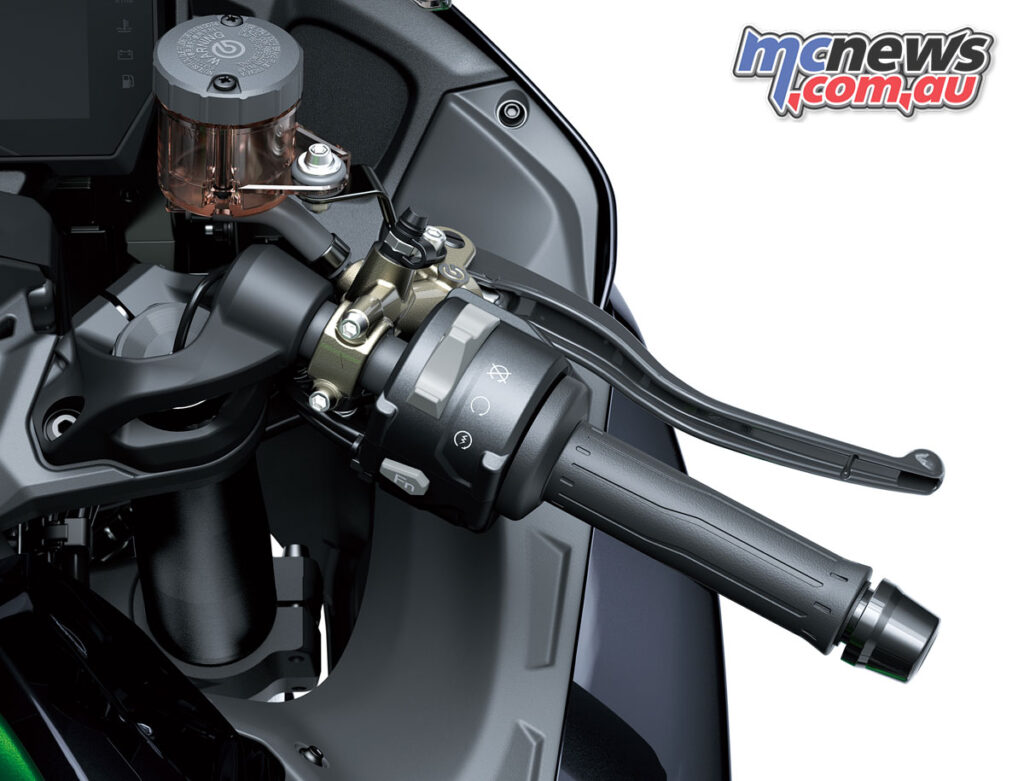
Vehicle Hold Assist will also help riders, by activating the rear brake, making for easier bike control at a stop, while both rider and pillion seats have been redesigned for better comfort. Heated grips are also now standard on all H2 SX models.
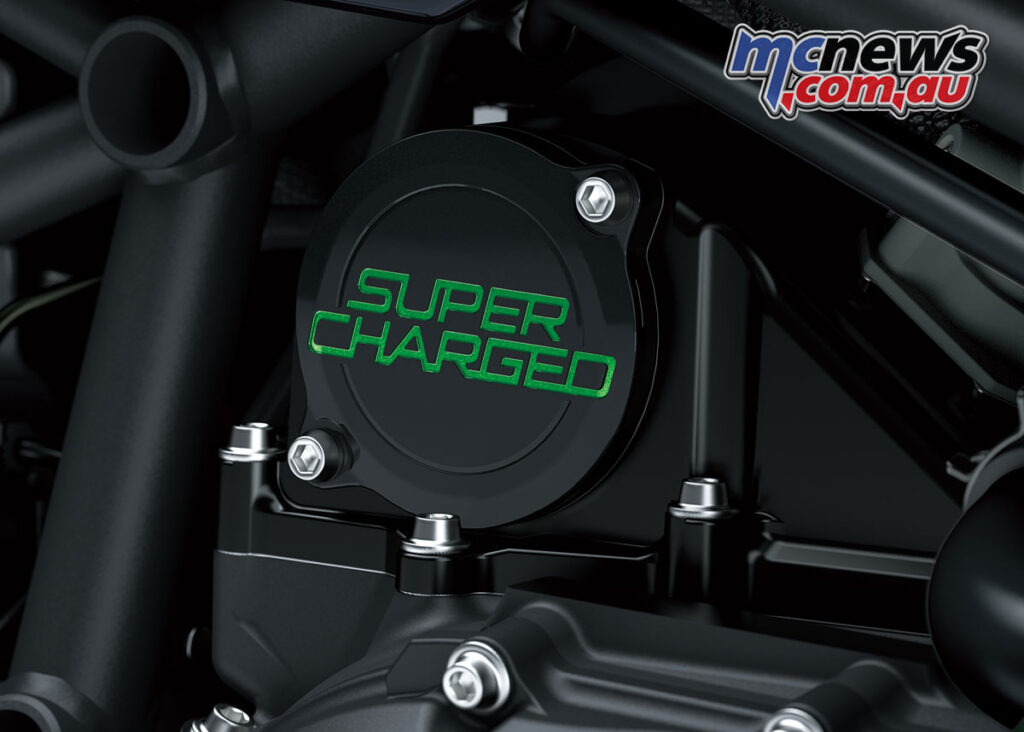
Tweaks to the supercharged powerplant have also been made, with a new resin silencer to the secondary air inlet for reduced mechanical noise, while revised cam timing aids performance. The exhaust pre-silencer is also gone, with larger collector pipe, catalyser volume and silencer instead. A two-colour ‘Supercharged’ emblem is also now run on the engine as a bit of bling.
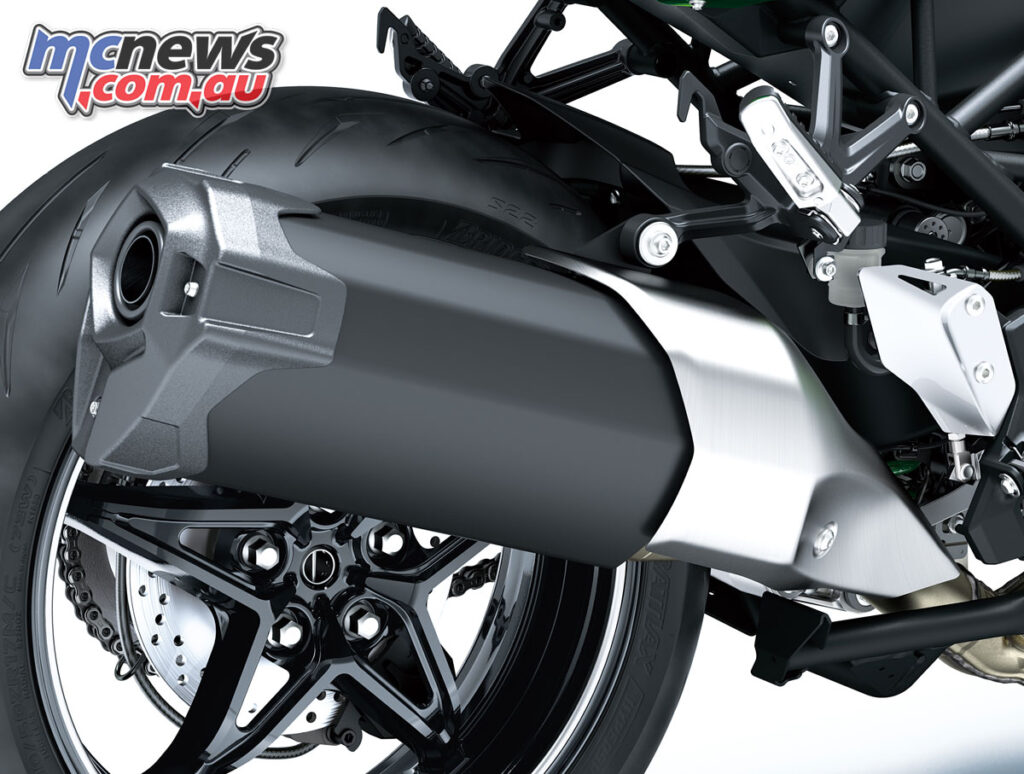
A straight pipe style exhaust in turn aids torque between 4000 and 8000 rpm with the dyno provided suggesting a noticeable overall increase throughout most of the rev range. The silencer or muffler increases to 8.8 L in volume, meeting Euro5 but as a fairly hefty unit.
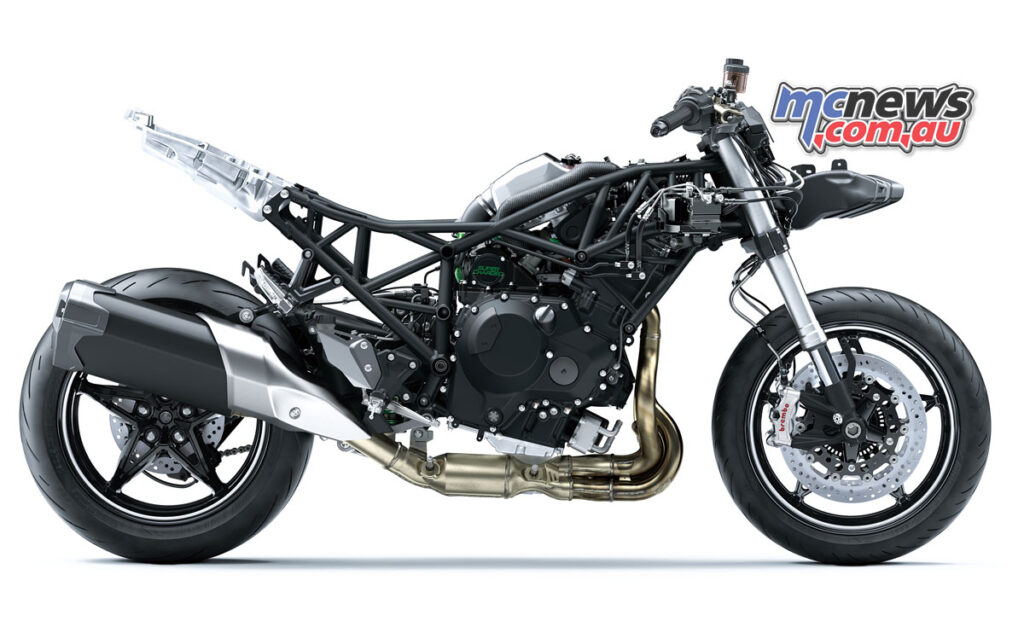
Other updates include to the gear teeth to minimise resonance during gear mesh, while the clutch cover has been stiffened with added ribs. Optimised fluid routing for the clutch should also improve clutch release according to Kawasaki, particularly shifting into neutral at a standstill.
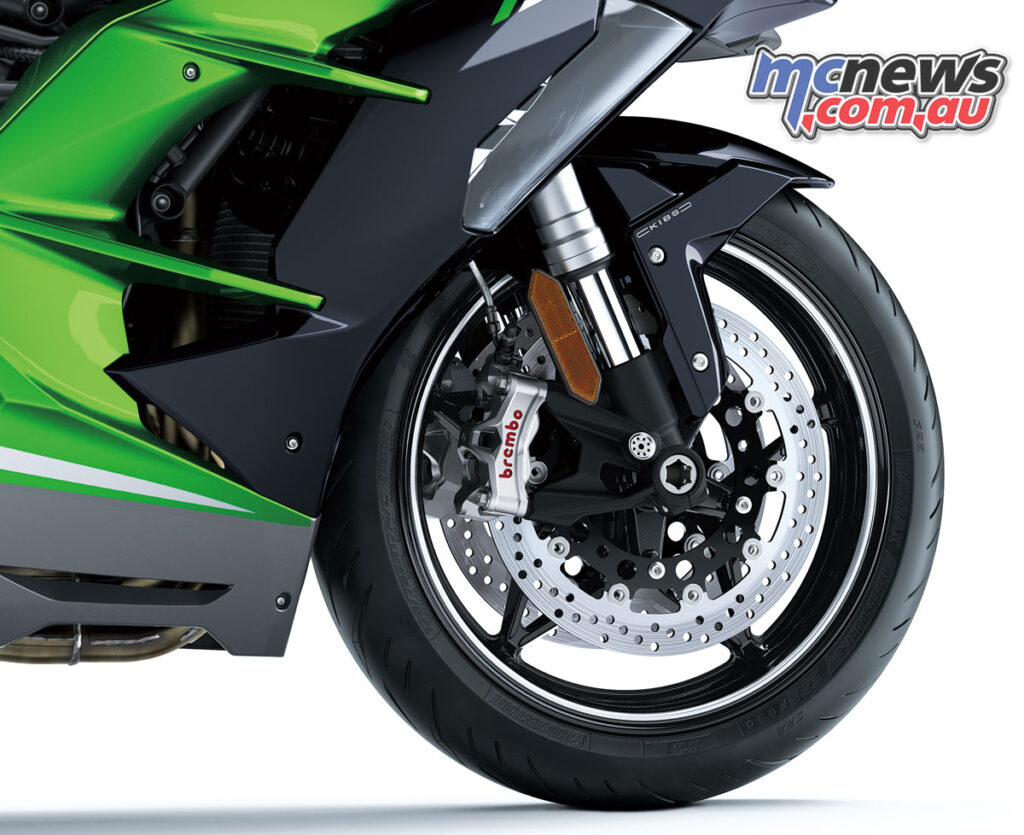
The chassis is largely unchanged apart from the addition of a Brembo radial master-cylinder, for the dual front 320 mm rotors with four-piston calipers. The new front brake lever shape is also designed for the new APS or Accelerator Position Sensor. A Bosch 10.3ME ABS unit is also run, while standard fitment tyres at Bridgestone S22s.
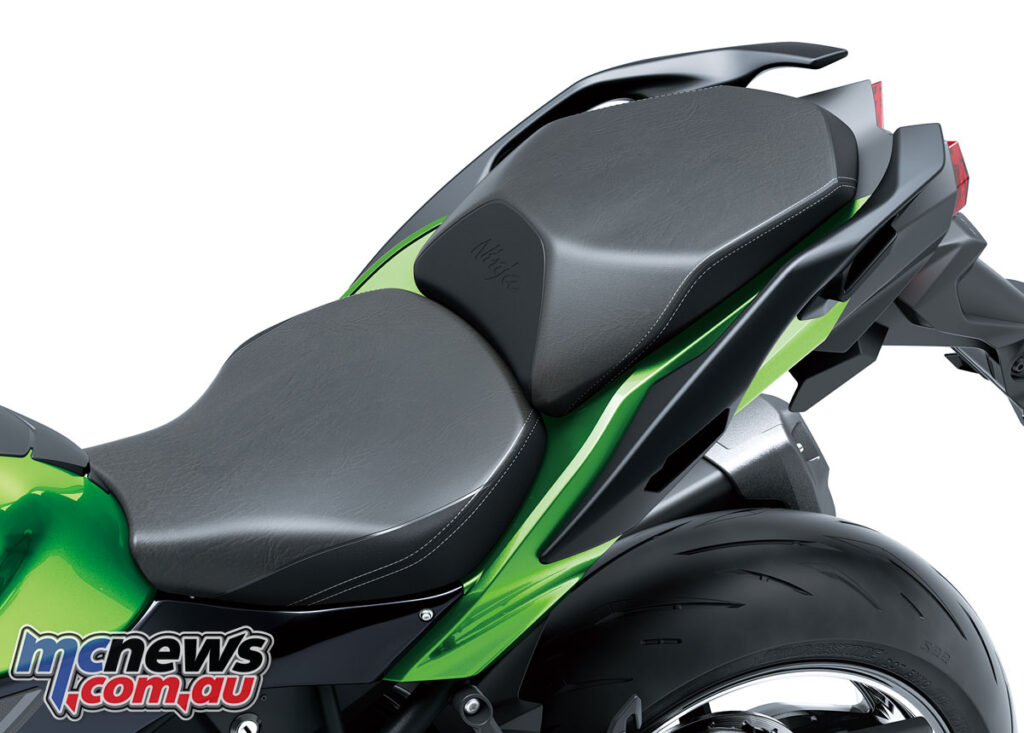
The new IMU also adds yaw rate measurement, where this was previously calculated, with a new FI-ECU used to control torque demand capabilities necessitated by the Adaptive Cruise Control, which works in concert with the ABS.
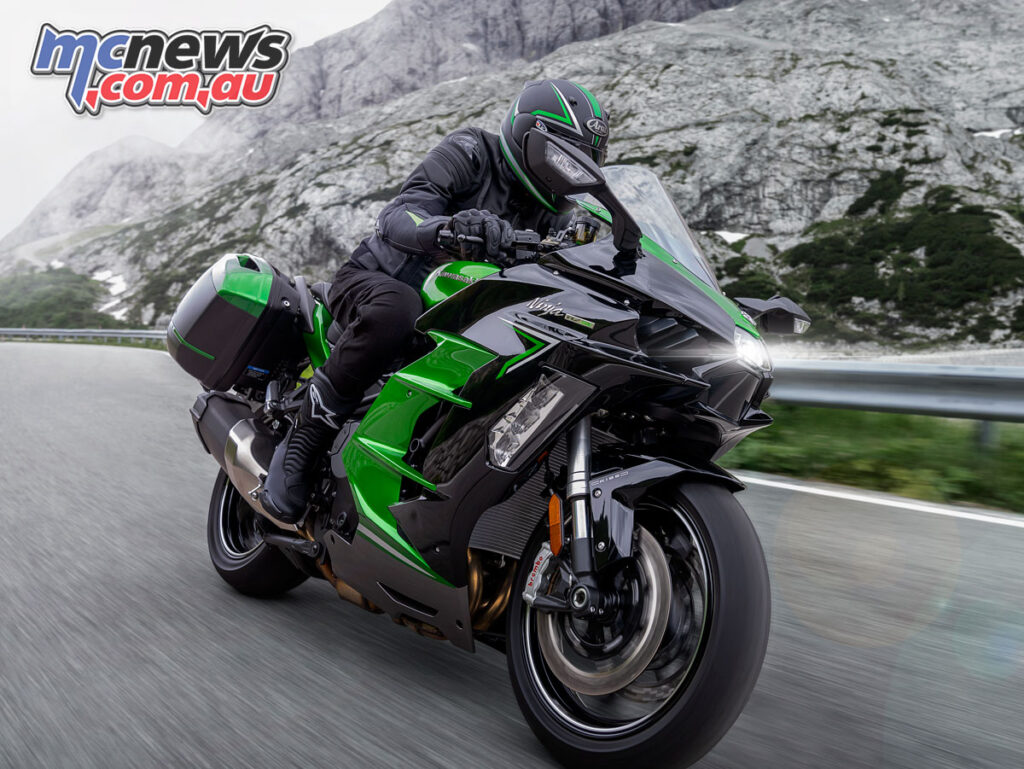
The 2022 Kawasaki H2 SX continues to offer the Kawasaki Traction Control, Kawasaki Cornering Management Function, Kawasaki Launch Control Mode, KIBS, Kawasaki Engine Brake Control, Integrated Riding Modes and Power Modes.
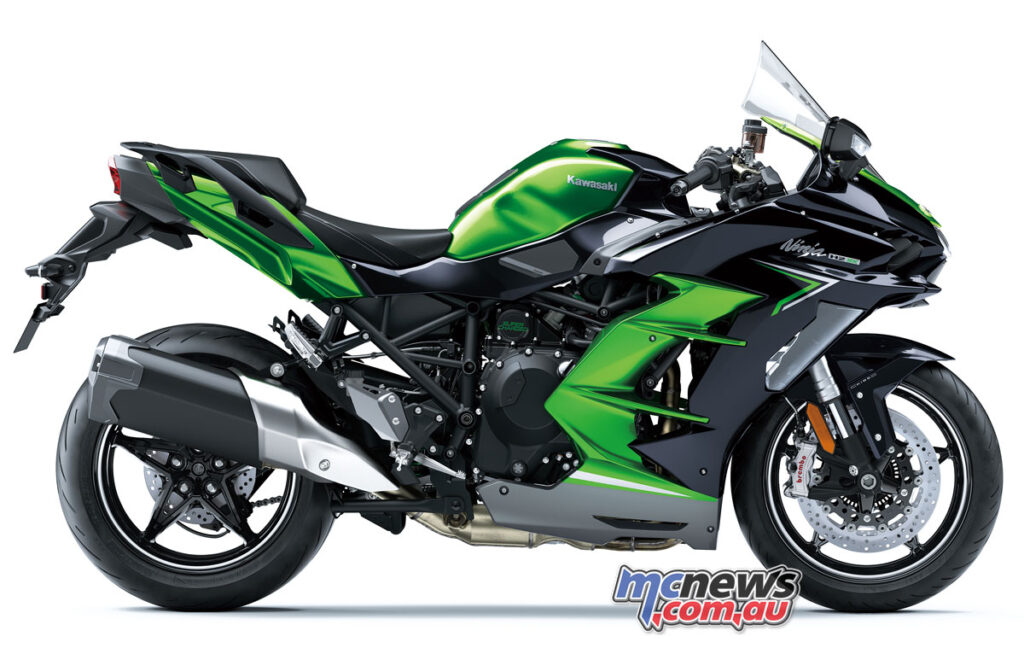
Power is 147.1 kW or 154.1 kW with ram air, while torque maxes out at 137.3 Nm at 8500 rpm.
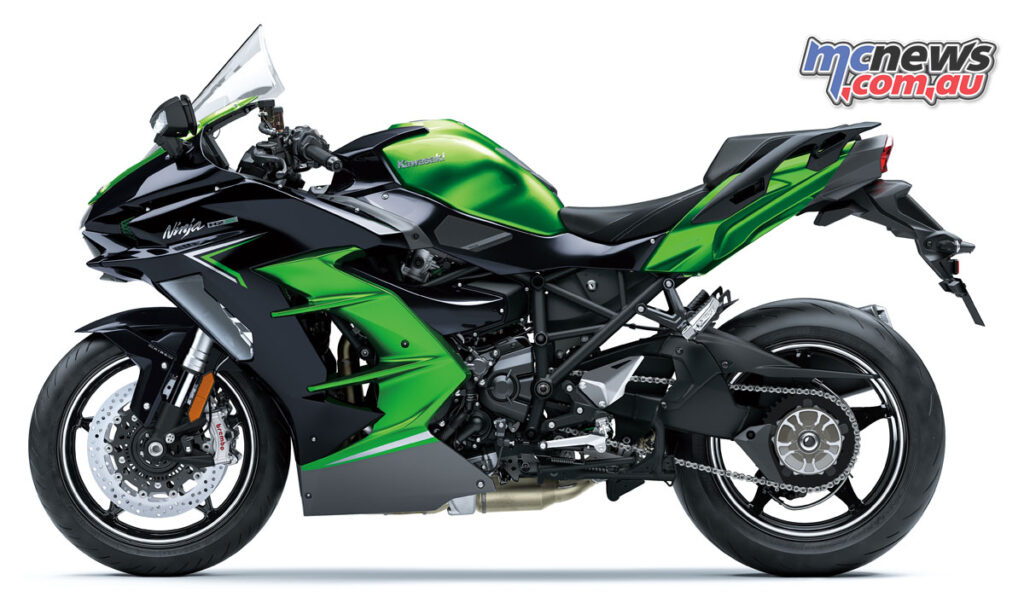
The high tensile steel frame is matched to 43 mm inverted forks with full adjustability, while a Uni-track shock includes piggyback reservoir and remote preload adjuster, with 120/139 mm travel front and rear respectively.
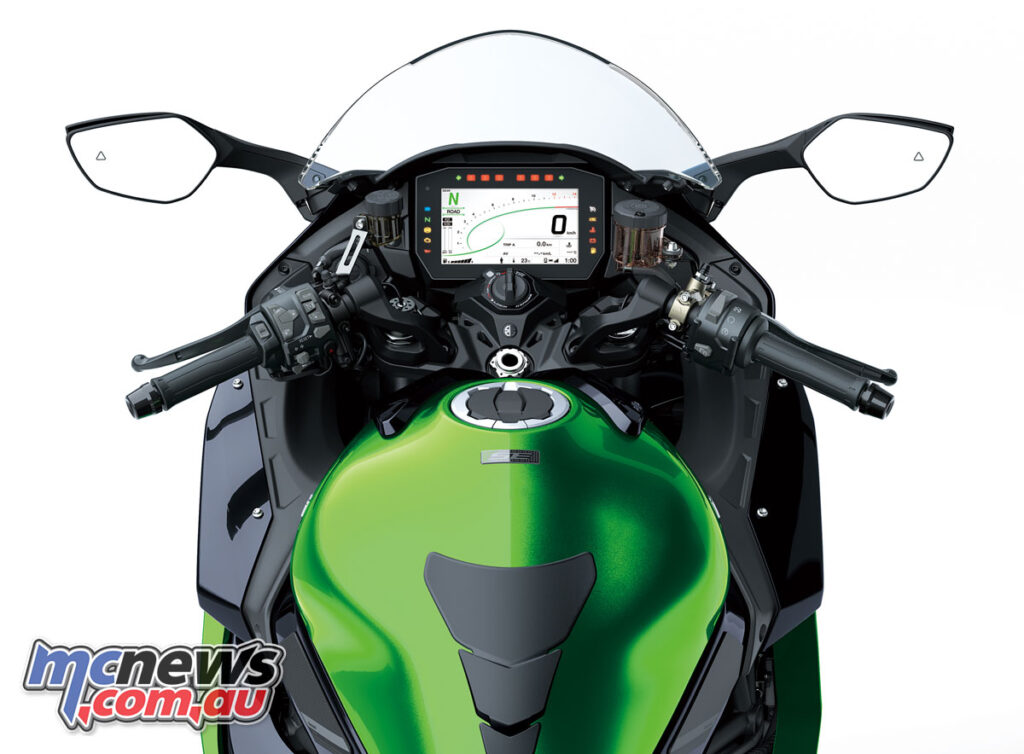
Total kerb mass with 19 L of fuel is 266 kg and seat height is 820 mm.
We’re being told Australian availability will be ‘Early 2022,’ with late Q1 or early Q2 of 2022 the current estimate, and we’ll only be getting the Ninja H2 SX in Australia, rather than the SE version with electronic suspension. Pricing is TBA, just had to get that one last acronym in there…
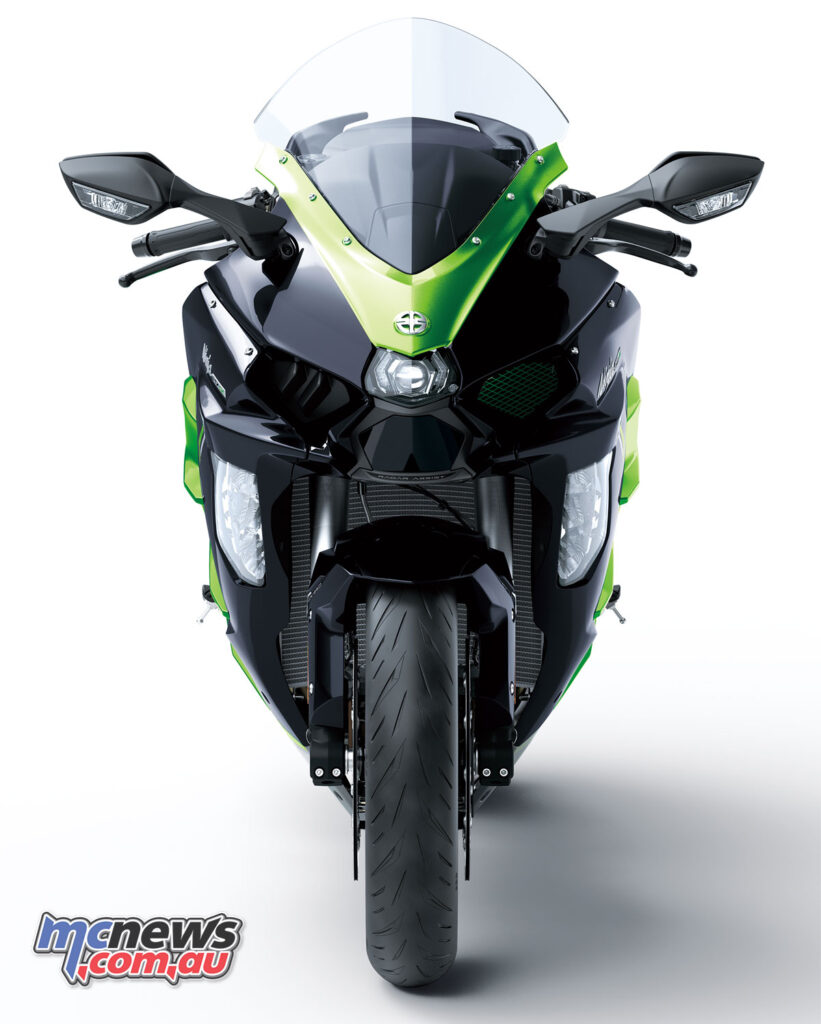
Source: MCNews.com.au
